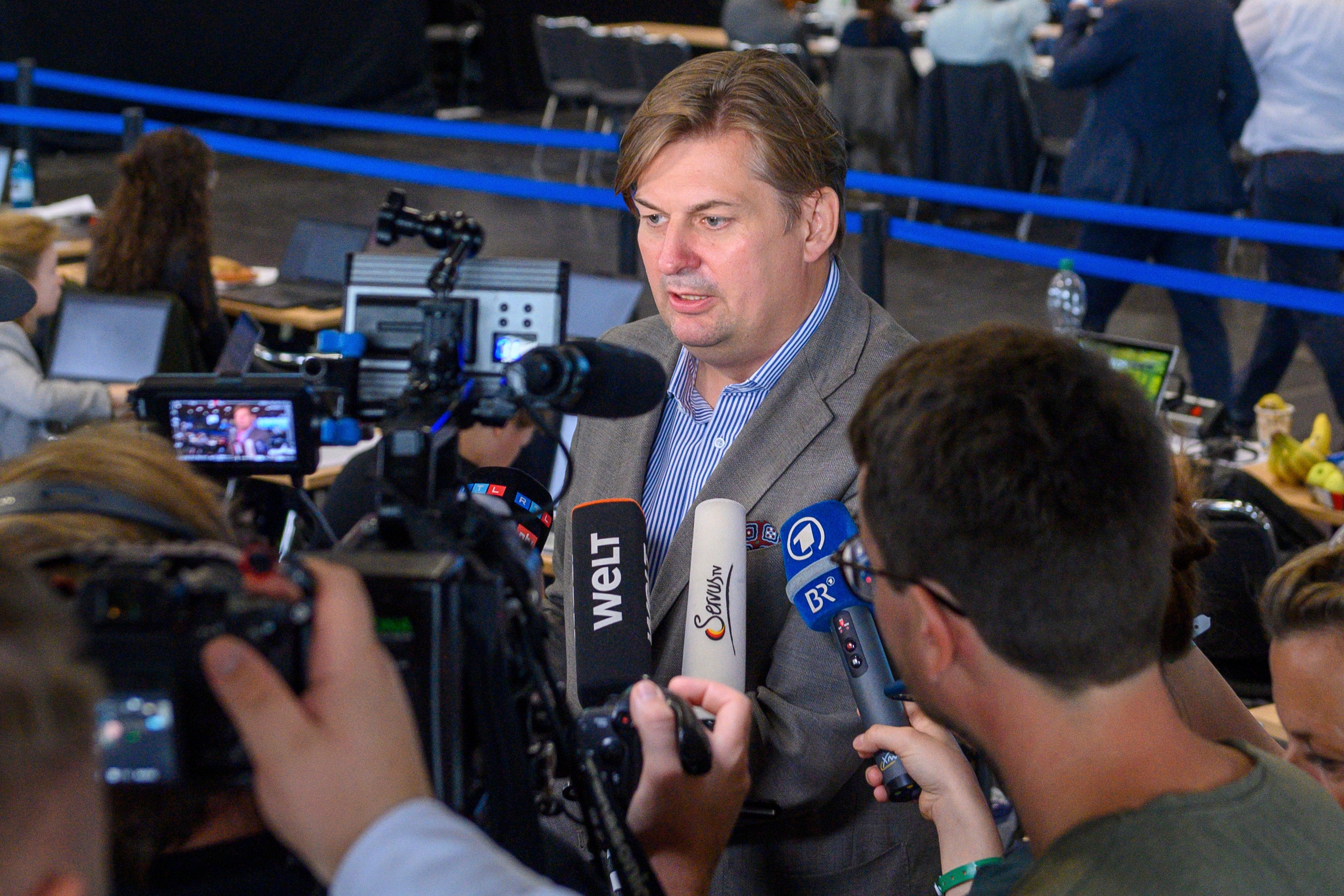German far-right says the EU is a 'failed project' as it prepares for European Parliament elections
The far-right Alternative for Germany has declared the European Union a “failed project” in its current form as it adopts its program for next June’s European Parliament election at its party convention in the eastern city of Magdeburg

Your support helps us to tell the story
From reproductive rights to climate change to Big Tech, The Independent is on the ground when the story is developing. Whether it's investigating the financials of Elon Musk's pro-Trump PAC or producing our latest documentary, 'The A Word', which shines a light on the American women fighting for reproductive rights, we know how important it is to parse out the facts from the messaging.
At such a critical moment in US history, we need reporters on the ground. Your donation allows us to keep sending journalists to speak to both sides of the story.
The Independent is trusted by Americans across the entire political spectrum. And unlike many other quality news outlets, we choose not to lock Americans out of our reporting and analysis with paywalls. We believe quality journalism should be available to everyone, paid for by those who can afford it.
Your support makes all the difference.The far-right Alternative for Germany declared the European Union a “failed project” in its current form as it adopted its program for next June’s European Parliament election at its party convention in the eastern city of Magdeburg on Sunday, the German news agency dpa reported.
The text states that the EU has “completely failed” in all important areas, including its migration and climate policy, and it rejects the Euro as a currency.
However, the party stopped short of demanding Germany's exit from the EU. Instead, the AfD is calling for the EU to be re-founded as a “federation of European nations,” dpa reported.
According to the election program, the main tasks of the new federation should be the protection of external borders against migration, strategic autonomy in security policy, and the preservation of “different identities” in Europe.
Recent polls put support for the AfD at 19-22%, behind only the main conservative opposition bloc. AfD candidates recently won elections in eastern Germany to lead a county administration for the first time since the 1930s and now holds the mayoralty in a town with a population of 56,000.
The program adopted in Magdeburg Sunday takes a softer line towards the EU than the draft program from June, in which the AfD said it would seek the “orderly dissolution of the EU.”
Several AfD officials had previously voiced their desire for Germany to exit the EU altogether, in what is called “Dexit.” However, the new program says the AfD supports the idea of a “Europe of fatherlands, a European community of sovereign, democratic states.”
AfD co-leader Alice Weidel said that the new compromise had been reached during negotiations late Sunday night, dpa reported.
The convention also finalized the AfD's list of 35 candidates for the European Parliament election next year.
Maximilian Krah was selected last weekend as the AfD's lead candidate with 65.7 percent of the votes. Krah has been a member of the European Parliament since 2019.
Leading members of the AfD spoke out on Sunday against cooperating with the country’s main opposition conservative bloc, the Christian Democratic Union of former chancellor Angela Merkel.
Their statements stand in contrast to previous calls by AfD leader Tino Chrupalla, who had urged the CDU to dismantle the “firewall” against his party.
Opening the convention last week, Chrupalla pointed to his party’s prospects of winning three state elections in eastern regions next year, telling delegates that “we could take on government responsibility.”
AfD co-leader Alice Weidel had made similar statements about the party's aspirations to government before.
But deputy chairman of the AfD Stephan Brandner told the Frankfurter Allgemeine Zeitung Sunday edition that he did “not see a reason to approach” the Christian Democratic Union, adding that the conservative party had had their chance for “much too long.”
Brandner has been a member of the German Parliament since 2017 and was the AfD front runner candidate in the state of Thüringen for the 2017 German federal elections.
The CDU’s main leader, Friedrich Merz, insisted that there would be no cooperation even at the local level between his Christian Democratic Union and AfD, after his apparent suggestion that they might work together prompted criticism from fellow conservatives.